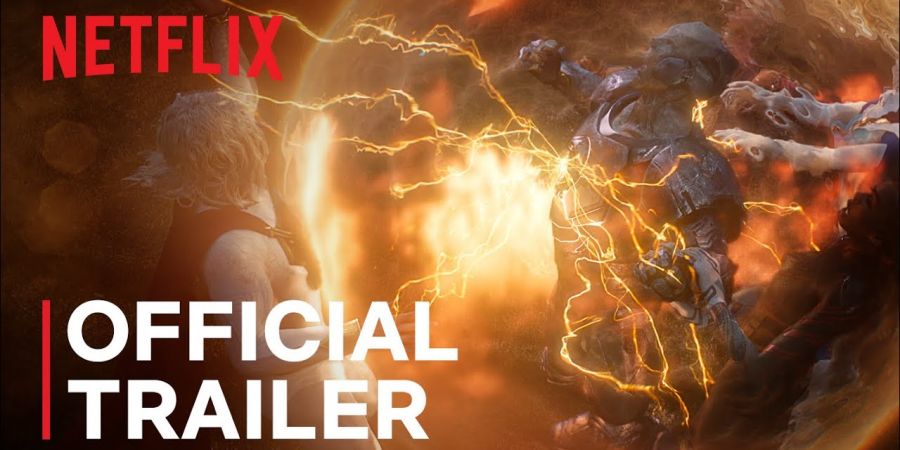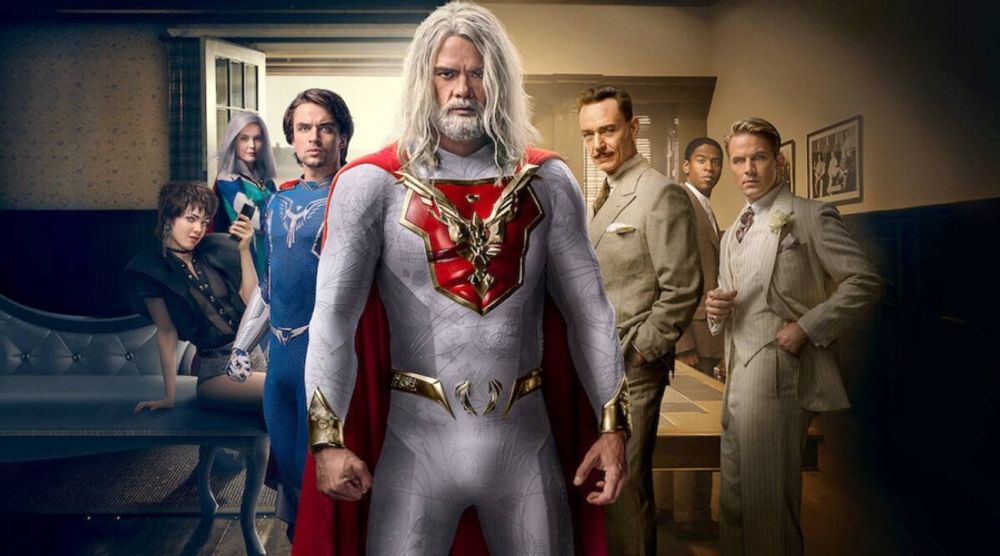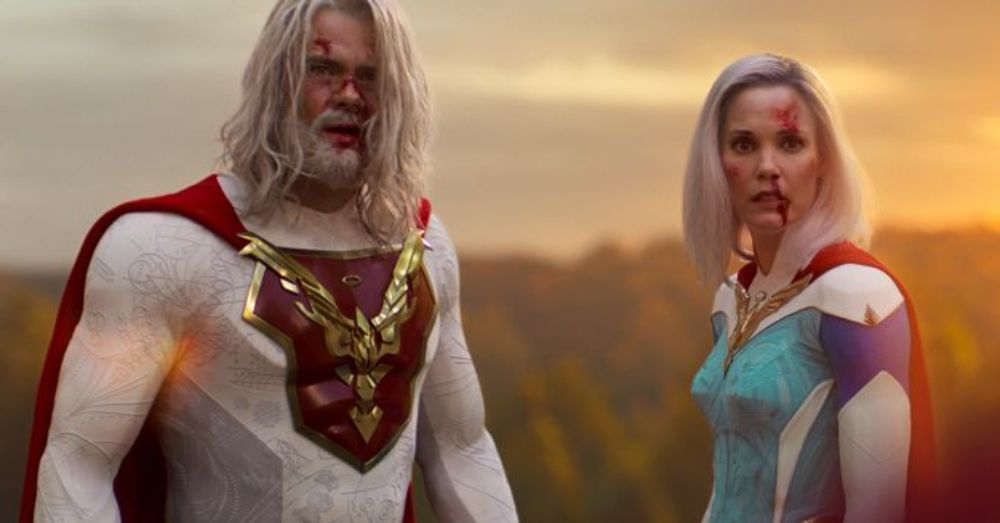


Whether or not you believe the line was a culmination of pre-planned meditations on misfortune, it may be acknowledged as a superb and succinct distillation of the issues of an occasionally contentious time of television.
In the final scene in Netflix's upcoming superhuman show, Jupiter's Legacy, a wound is inflicted on something similarly intelligent.
"I've realised that adversity has a dreadful blessing," Josh Duhamel's Sheldon Sampson says, half word salad, half doltish numerical condition, all meaningless drivel.
Jupiter's Legacy, adapted by Steven S. DeKnight from Mark Millar and Frank Quietly's comic book adaptation, alludes enigmatically to the legacy left by a senior generation of superheroes for a new age of saints confronting a fiercely unique world.
The program's only actual heritage is turning up in such a hero-obsessed environment that it's almost impossible to find a single character, narrative, or topical moment here that you won't be comparing to a previous programme.
Whether Jupiter's Legacy is found wanting as a vehicle for delving into how anguish can bring even the most powerful people to their knees, as a befuddled hero collaboration in the vein of Umbrella Academy and The Boys and Doom Patrol, or as an editorial on superhuman daddy issues in the vein of Invincible or Superman and Lois, this eight-scene dramatisation is one of the most v It's a minor annoyance with no visible incentive to change it.
There are two timetables for the season. Sheldon Duhamel and Grace Leslie Bib have been married for a long time in the present. As a hero pair, the Utopian and Lady Liberty are tasked with guarding the Earth, apprehending troublemakers, and adhering to a "code" that stipulates that they never murder anyone, under any circumstances, and that they never attempt to influence strategy. Sheldon and Grace earned their force in the distant past, alongside Sheldon's brother, Walter (Ben Daniels), but there are a slew of 20-something legends who earned theirs in a different way, saints who aren't certain that Sheldon's code genuinely applies.
Sheldon and Grace's son Brandon (Andrew Horton), who is trying to break free from his father's shadow, and stubborn little girl Chloe (Elena Kampouris), who uses her celebrity – superheroes are VIPs in this world — to secure underwriting deals and do photoshoots, are among the new saints.
The conditions that motivated Sheldon and Grace, Walter, and Sheldon's amigo George (Matt Lanter) to join forces are depicted in the alternative schedule, which is set around the 1929 stock market crash.
By any stretch of the imagination, neither of the plots works.
Surprisingly, they fizzle for a variety of reasons, but it doesn't help that each component is projected in the middle of two age groups. It's ridiculous that Duhamel, Bib, and especially Daniels pretend to be in their twenties in the flashback. Tolerating that superheroes age at a different rate in today's world, it's clever to have the entire cast dressed in trashy older age cosmetics. Mind you, having these geriatrics in leggings is crucial for the comic's trick. Regardless of whether they're maturing up or down, neither of the makeups is acceptable or consistent — there are times when they don't appear to be attempting to make Bib look anything other than spectacular — so the entertainers all look awkward the entire time, and none of the stars are naturally capable of enduring eight hours of unending anxiety.

It's a lot easier to figure out why the flashback section of the storey is so bad, and it's not because the performers are as convincingly period-appropriate as a Great Gatsby-themed fraternity party where no one has ever read The Great Gatsby. Basically, for the entire flashback, which spans eight scenes, there are no stakes or thrilling turns in the path.
The show's Netflix trailer opens with footage of the "younger" characters arriving on the island to gather their forces, an occurrence that occurs at the end of the seventh episode.
Netflix frequently asks critics not to reveal plot details that occur in the first 15 minutes of a pilot, so if the decoration has no qualms about spoiling a plotline from the season's close to-last scene because it's so obvious, what possible reason could viewers have for needing to see that segment of the venture?
A better plan would have been to do a complete flashback independent scene 66 percent of the way through the season, presumably projecting younger versions of the main characters.
That manner, you might have mistaken the provided data for "filling in the gaps," rather than a storyline designed to maintain interest hour after hour, which it most certainly does not.
On the other hand, when all is said and done, the current tale isn't all that intriguing. There's a scalawag, but the main snare is an ethical conflict between the obstinate Sheldon, who is sticking to the code to cover his advancing age, and Brandon, who would prefer not to massacre a miscreant's harem — but has the option in his toolbox.
The show is philosophically devoid, which is especially remarkable given that Millar (Wanted, Kick-Ass) will generally make incisive (though occasionally contradictory) observations about the dissolution of modern culture and the devastating effects of vigilante brutality. Jupiter's Legacy only goes as far as to say,
"We live in divided times, and that is dreadful."
Even when there's nothing significant to say, you get the impression that there's a version of this programme focusing on the father-son conflict of law required styles, only Sheldon is a horribly hypocritical pill, and Brandon is beyond exhausted. Brandon should be the protagonist of this storey, but there are three or four scenes in the season where he's nearly absent, and if you asked me for a single descriptive term to describe his character or Horton's performance, I'd stall out mentally.
There isn't anything to be found there.
Throughout, I kept thinking I'd missed important storey points or character development, and I double-checked to see whether I'd skipped any scenes. I hadn't done so. The plotline focused on Chloe taking pharmaceuticals and leaping into a not-even-marginally plausible emotion with a rising criminal named Hutch is far more terrible (Ian Quinlan).
That plot revealed how completely Jupiter's Legacy lacks an objective segment — despite occasional swearing and some childish savagery, it's essentially BYU TV–level tasteless in comparison to The Boys — and it also plays with the show's core, in light of the fact that, as dull as the characters may be, Kampouris and Quinlan are the only entertainers in the cast who aren't on actin'.
The Chloe/Hutch show has a 10% probability of being worth viewing in the best case scenario, which is higher than the rest of the arrangement.
To put Sheldon's appearance on melancholy into my own blender, I'll do the following: When there's nothing to gain by watching a stupid superhuman TV show, there's nothing to lose by skipping it entirely.
